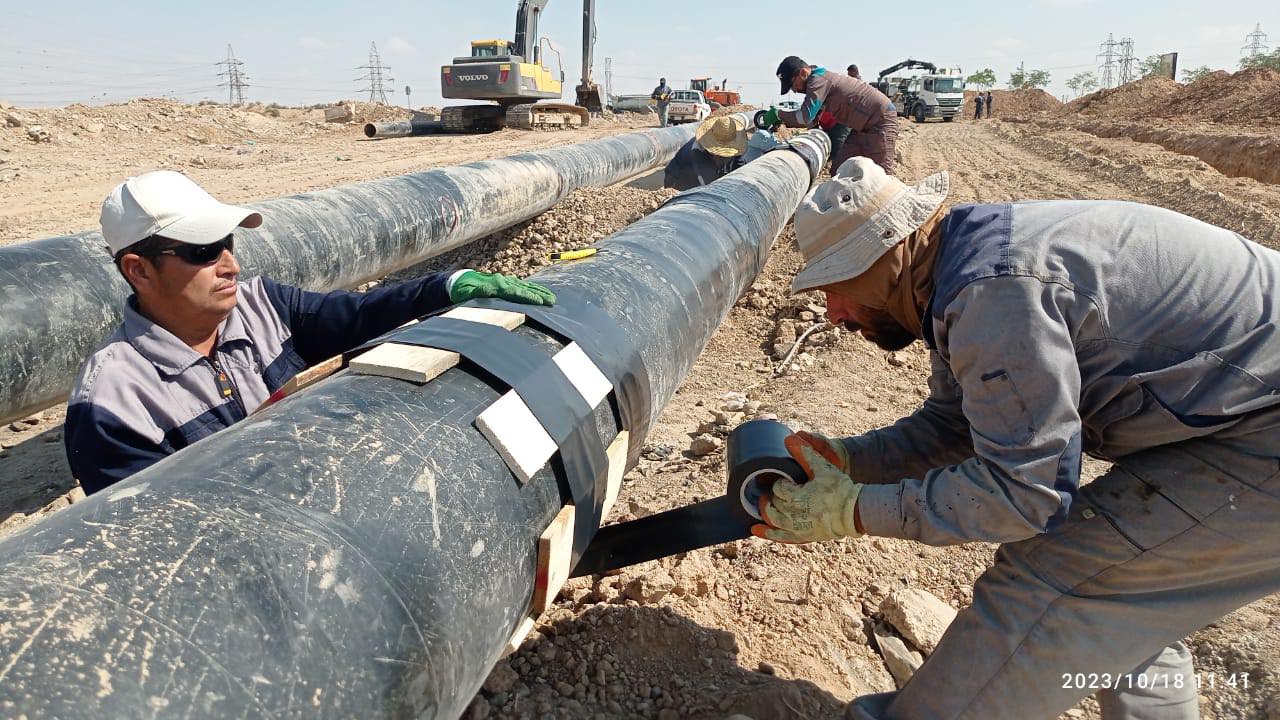The Iraqi Ministry of Oil announced the completion of a project to transport dry gas from the Khor Mor field in Chamchamal district of Sulaymaniyah to the adjacent oil-rich city of Kirkuk.
The Ministry and the state-owned North Oil Company indicated that the gas produced will be used to feed the Kirkuk gas power station and increase its production of electricity.
The Ministry stressed in a statement published on Sunday, November 5, that the project to extend the gas pipeline feeding the station was completed in two phases, noting that the project “will lead to an increase in the production of electrical energy in Kirkuk.”
A source in the Northern Company told (KirkukNow) that, “The pipeline extended between Khor Mor and Jambur was originally there, and a branch line was constructed in addition to rehabilitating the old pipe, in order to transport gas from the Khor Mor field to Kirkuk.”
The source explained that "the gas produced is not for sale, but will be used internally to increase the production of electrical energy."
The source indicated that Khor Mor gas will be used directly to produce electricity in the Taza district power station, which is the largest electric power production station in Kirkuk Governorate.
Khor Mor is a producing conventional gas field operated by Pearl Petroleum, owned by Crescent Group Holdings, Dana Gas, MOL Hungarian Oil and Gas, OMV and RWE, according to GlobalData. The gas field recovered 14.58% of its total recoverable reserves, with peak production expected in 2025, production will continue until the field reaches its economic limit in 2080. The field currently accounts for approximately 2% of the country’s daily output.
The northern oil-rich city of Kirkuk, 238 kilometers north of Baghdad, is an ethnically mixed province for 1.7 million Kurds, Sunni and Shiite Arabs, and Turkmens. It has long been at the center of disputed territories between Baghdad and Erbil.
The Ministry's statement regarding the project stated that "the pipeline implementation work was carried out in coordination with the Kirkuk Governorate Electricity Directorate, the North Gas Company, the North Oil Company, and the Traffic, Roads, Bridges and Communications Directorate."
The project comes at a time when Kirkuk has been suffering for years from deteriorating electricity conditions, but it is not yet clear whether the station’s electrical energy production after being fed with Khor Mor gas will be for Kirkuk Governorate only or not.
Kirkuk is one of the main disputed areas in addition to Diyalah and Nineveh that a three-stage process outlined in Article 140 of the Iraqi constitution in 2005, stipulating normalization, a population census and a referendum on the status of the territories, was drawn to put an end to Erbil-based Kurdistan Region Government KRG and Iraqi Federal government dispute over these areas.
Kirkuk governorate needs more than a thousand megawatts daily to secure the electricity needs of its residents while it is receiving half of the demanded power. The governorate administration relies on 733 private diesel generators to make up for the shortfall in hours of supplying national electricity.
Few years ago, the local authorities gave permission to installation of private diesel generators in the residential neighborhoods to provide power and fill in the national power outage as it could provide only half of the demand on national network of state-subsidized electricity.
The cost of the power provided by private generators is couple of times double of power provided by the state thus people are obliged to consume as less as possible during national power outage in order to pay less for private generators.
Iraq's electricity ministry has cited a number of causes for the prolonged and widespread cuts including sabotage attacks, shortages of fuel for power stations, and lack of budget for periodical maintenance.





